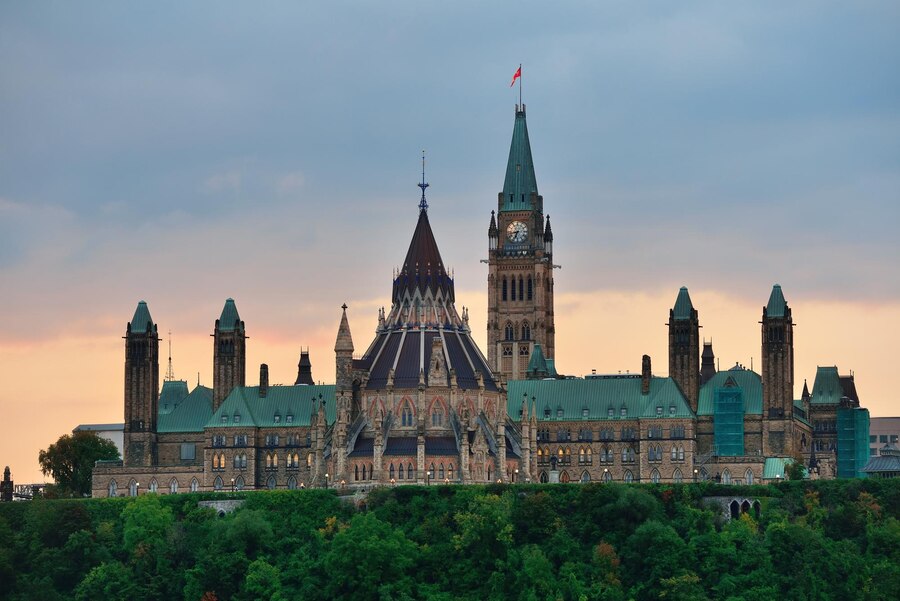British Columbia (BC) is taking significant strides to ensure that its postsecondary education system is fair, high-quality, and transparent. On July 15, 2024, the Ministry of Post-Secondary Education and Future Skills announced Phase 2 of its International Education Framework, a continuation of efforts begun earlier in the year to address concerns about exploitation and improve educational standards. This new phase builds on the previous measures and introduces several crucial changes designed to elevate the quality of education for international students in the province. British Columbia Bold Move
Understanding the Evolution of BC’s Education Framework
The International Education Framework, initiated in early 2024, marked a major shift in how BC manages its postsecondary institutions, particularly those catering to international students. Phase 1 of this framework introduced a range of new requirements aimed at increasing transparency, enforcing compliance, and improving educational standards across both public and private institutions. British Columbia Bold Move

Key Elements of Phase 1:
Enhanced Compliance and Enforcement:
The government set stricter rules for institutions to follow, ensuring they adhere to high standards.
Higher Standards for Private Degree Programs:
Private institutions offering degree programs were required to meet more rigorous quality standards.
New Language Requirements:
Private training institutions had to implement new language proficiency requirements to better support international students.
Tuition Transparency:
Public institutions were mandated to provide clearer information about tuition fees, helping students make informed decisions.
Despite these improvements, concerns about exploitation and quality continued, prompting the need for further action. As a result, the government announced Phase 2 of the framework, which promises even more comprehensive changes to address these issues. British Columbia Bold Move
Phase 2: What’s New?
Announced on July 15, 2024, Phase 2 builds on the previous framework’s achievements and introduces several important updates:
Education Quality Assurance (EQA) Designation Changes:
All postsecondary institutions in BC must hold an EQA designation to enroll international students. Phase 2 brings forth additional criteria for this designation:
In-Person Program Requirements:
This change aims to ensure that international students receive a substantial portion of their education on-site rather than through online or distance learning.
Student Support Staff:
Institutions are now mandated to employ specialized staff to assist international students, focusing on their distinct needs and challenges.
Compliance with IRCC Reporting:
Institutions must be compliant with Immigration, Refugees and Citizenship Canada (IRCC) reporting requirements, ensuring proper documentation and oversight. British Columbia Bold Move
New Code of Practice:
A new Code of Practice for EQA-designated institutions was introduced, covering several key areas:
Clear and Accurate Marketing:
Educational institutions are required to offer clear and truthful marketing and promotional details to potential students.
Accountability for Education Agents:
Institutions are responsible for the conduct of education agents who represent them, ensuring that these agents adhere to ethical standards.
Tuition Transparency:
Institutions must maintain clear information about tuition fees and any additional costs.
Housing Assistance:
Institutions are required to offer assistance with housing arrangements for international students.
Academic and Health Supports:
There are new measures to support students academically and ensure their health and safety while studying in BC.
Reactions from BC Institutions
The response to Phase 2 has been largely positive among BC’s educational institutions, though many are still adjusting to the new requirements.
Carolyn Russel, Vancouver Island University’s Vice President of Students, expressed her enthusiasm about embarking on this new chapter. She believes it will provide a consistent experience for international students across the province, highlighting BC’s commitment to high-quality education.
Similarly, Vinnie Nobre, Vice President of Canadian Operations at ILSC Education Group, sees the framework as an exciting opportunity. His organization supports the government’s commitment to upholding high standards and ensuring a positive student experience.
Angela Johnston, VP Academic at ILAC Education Group, also expressed support for the new measures. She believes the framework will enhance quality assurance across the sector, ensuring that international students receive the education they expect.
Impact on Public and Private Institutions
The changes brought about by Phase 2 will have varying impacts on public and private institutions in BC.

Public Institutions:
Enrollment Cap:
This measure aims to prevent over-reliance on international students and ensure a balanced student population.
Tuition Fee Transparency:
Public institutions must adhere to stricter transparency obligations regarding tuition fees.
International Education Strategic Plan:
Public institutions are required to develop and implement a strategic plan for international education, ensuring that their policies and practices are aligned with the new standards.
Private Institutions:
Increased Fees:
Private degree-granting institutions will face higher annual, application, and review fees.
Labour Market Alignment:
Degree programs at private institutions must align with the needs of the labour market, ensuring that graduates are well-prepared for employment.
Enrollment Management:
Private institutions must manage their enrollment in a way that is appropriate for their infrastructure and resources, ensuring that they can effectively support all students.
Private Training Institutions:
These organizations, such as language academies accredited by the Private Training Act, are set to experience a range of modifications.
- Higher Government Fees: Increased fees for registration and operation.
- Program Standards: Enhanced program content standards to ensure quality education.
- Student Protections: Improved protections for students, including more generous refund policies, reduced maximum contract terms, and a ban on high-pressure sales tactics.
Looking Ahead: Future Developments
As BC advances with these new initiatives, the possibilities for further enriching international education are abundant. Stakeholders in the sector have proposed several additional measures to support and improve the system:
Increased Quality Assurance:
Angela Johnston emphasizes the need for regular site visits and quality assurance activities to ensure that institutions are operating as bona fide educational providers.
Collaboration and Feedback:
Vinnie Nobre advocates for increased collaboration between public and private institutions, streamlined visa and immigration processes, regular feedback mechanisms from students and institutions, and support for the professional development of educators and staff.
Communication and Transparency:
Carolyn Russel suggests that improved communication with prospective international students about the EQA and the benefits of studying in BC could further enhance the province’s reputation as a top study destination.
Conclusion: British Columbia’s ongoing efforts to reform its postsecondary education system reflect a strong commitment to improving the quality and integrity of education for international students. With the introduction of Phase 2 of the International Education Framework, BC is setting a new standard for educational excellence, transparency, and student support. These changes promise to create a more equitable and high-quality educational environment, ensuring that students from around the world can thrive in BC’s institutions.

While we strive to ensure the accuracy and reliability of the content, we cannot guarantee that all information is current or error-free. The policies and regulations mentioned are subject to change, and it is advisable to consult official sources or directly contact the relevant authorities for the most up-to-date and specific information. The opinions expressed are those of the author and do not necessarily reflect the views of VisitInCanada.com or any associated organizations.
Source: thepienews.com
Get Free Expert Advice: Are you ready to embark on your next adventure? Whether you’re seeking a work permit, tourist visa, or study opportunities in Canada or other countries, we’re here to help! Contact us today to learn how our expert services can simplify your journey and turn your dreams into reality. Reach out now and let’s start planning your future together!
- Canada Citizenship Requirements: Everything You Need to Know
- Canada’s New Visa Rules: What It Means for Indian Students
- Navigating Student Visa Regulations for Studying in the US, UK, Australia, and Canada
Also read:
- How Trump’s New Tariffs on Canada Could Impact Indian Students’ Budgets in 2025
- Canada Expands Work Hour Limit for International Students: A Game-Changer!
- Canadians Must Obtain ETA for U.K. Travel Beginning January 2025
- Canada Must Strengthen Efforts to Curb Misuse of Visitor Visas
- Canada’s Work Permit policy for International Students
